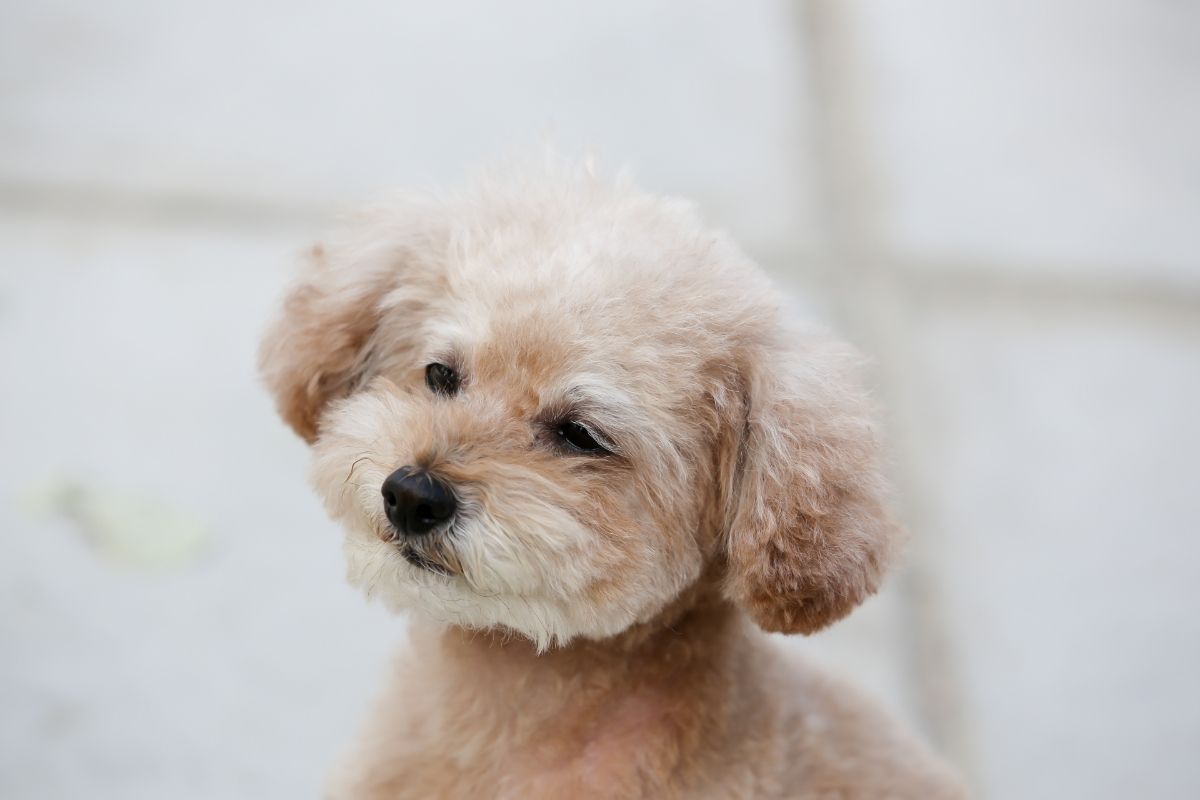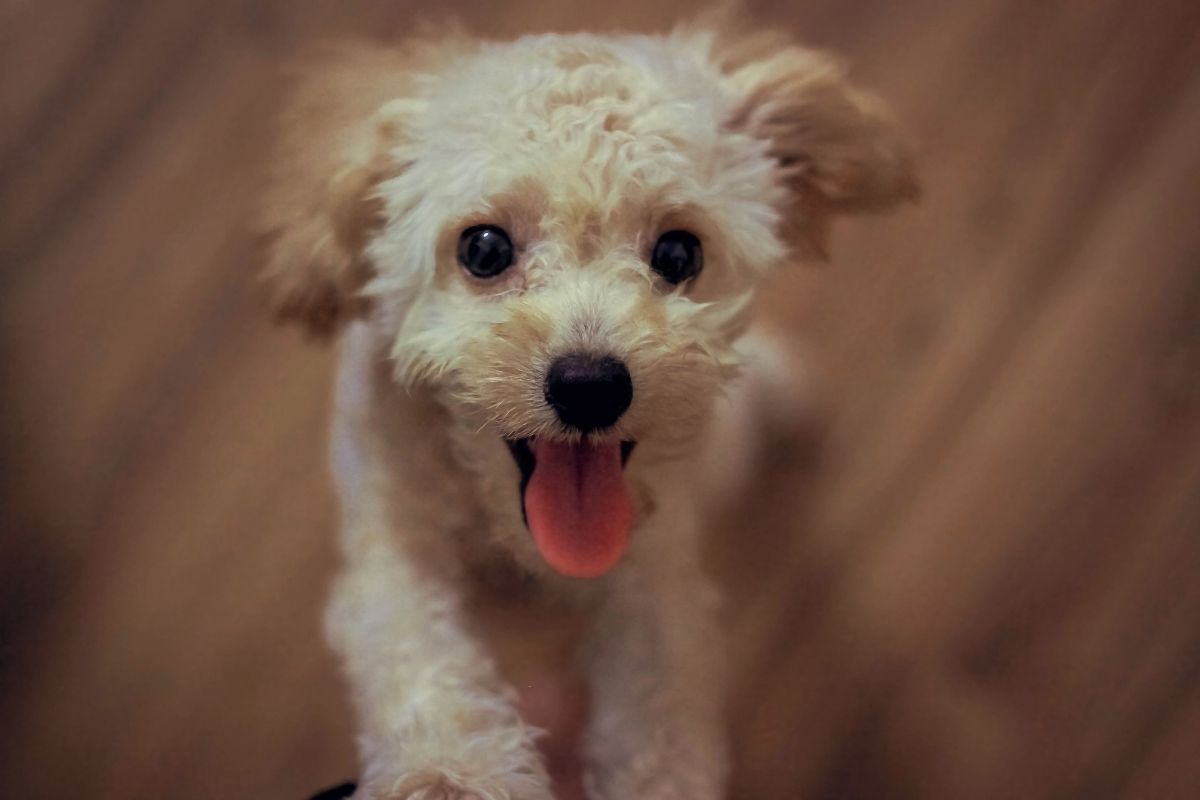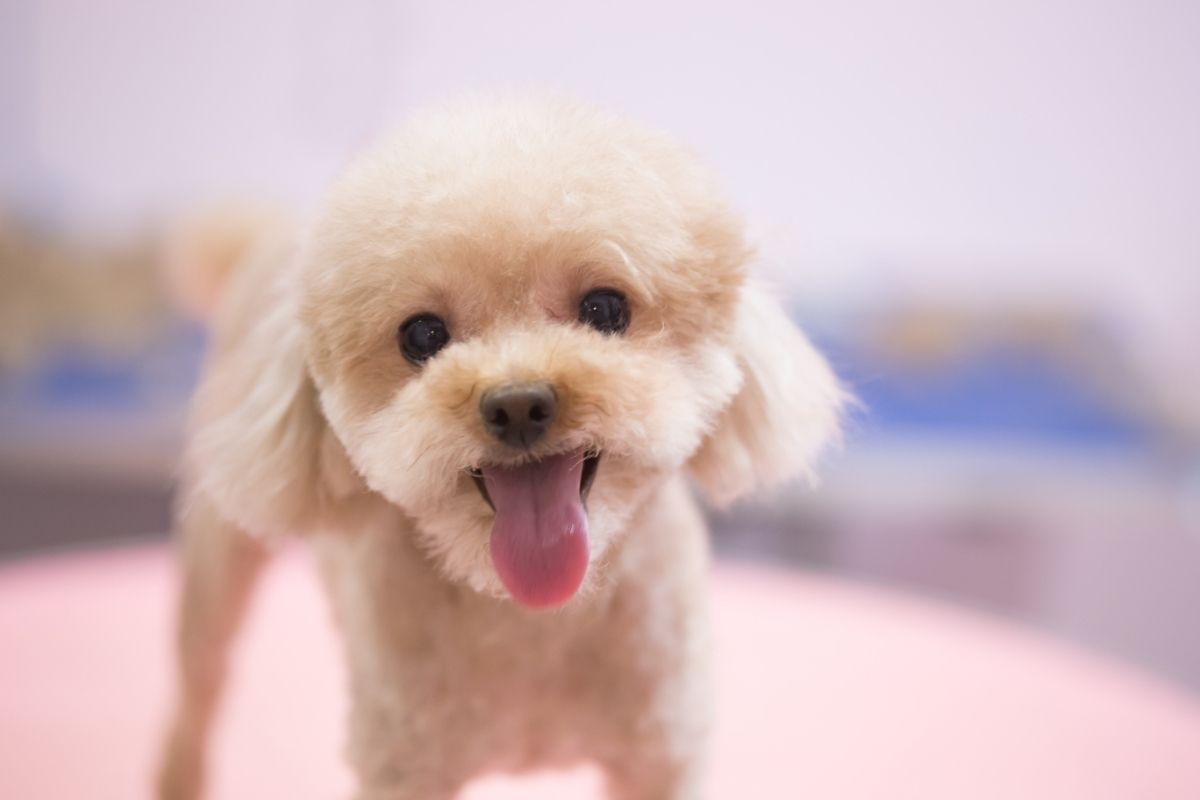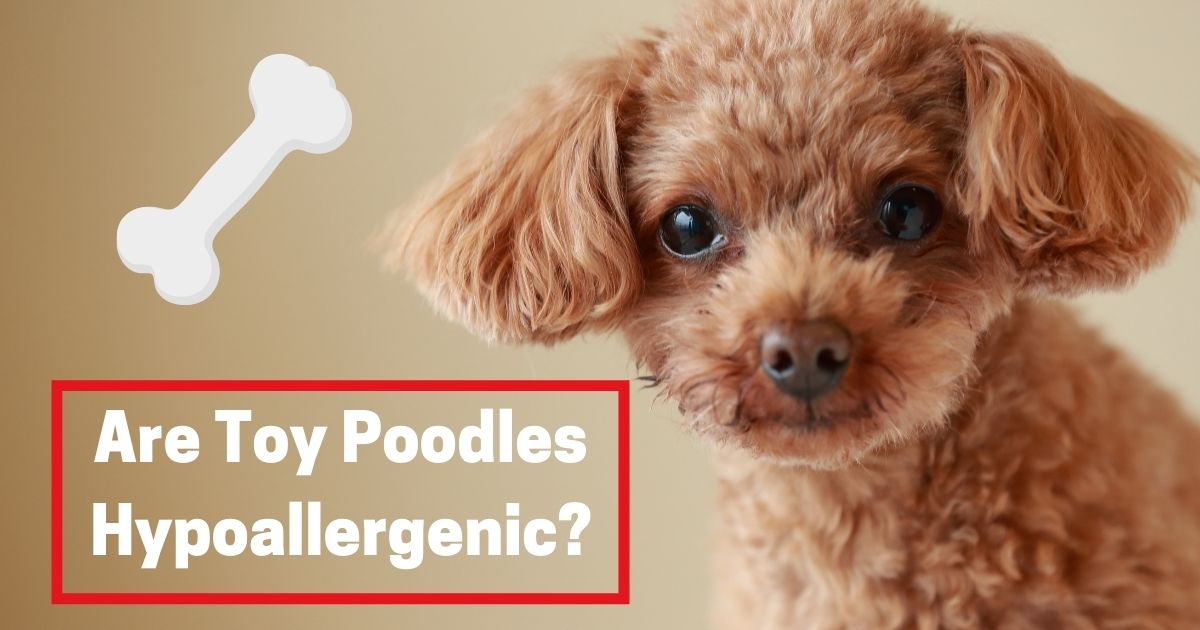Are toy poodles hypoallergenic? This is a common question asked by those who suffer from allergies and pet dander, and it can be challenging to find an answer. Unfortunately, there are a lot of misconceptions about what makes a dog hypoallergenic.
Some people think that small dogs can’t shed or that certain breeds have hair instead of fur, but it’s not always the case. In this blog post, we’ll explore what makes a dog hypoallergenic and debunk these myths about toy poodles being hypoallergenic.

The Nature of the Toy Poodle
Toy poodles are clever and very easy to train. They’re quick, elegant, and sharp, as well as bright. They enjoy a wide variety of activities, including agility, competitive obedience, tracking, and performing tricks. In addition, they are naturally very loving and make great family pets.
Toy poodles are a modern and trendy breed, especially among those with allergies. This toy-sized dog is affectionate, intelligent, and busy enough that they don’t get in the way. Their curly, non-shedding coat might also be a bonus.
They are available in several sizes to fit any need. Some of the toy poodle sizes are:
- The standard poodle is considered a medium to large dog breed; its average height ranges between 18 and 24 inches tall. They weigh anywhere from 40 to 70 pounds.
- The miniature poodle is 11 to 15 inches tall and weighs 11 to 24 pounds.
- The tiny poodles are between seven to 10 inches tall and weigh between three to nine pounds.
The average lifespan is 12-15 years, and the breed has only minor health concerns. However, miniature and toy poodles may be affected by hip ailments, like many medium to giant dog breeds. They can also be affected by eye conditions and skin allergies.
The color of poodle coats is just as unusual as their size. Although the name “Poodle” is most often associated with a white dog, the breed has been developed in various hues.
These hues include:
- Apricot toy poodle
- Silver toy poodle
- Tan toy poodle
- Red toy poodle
- Brown toy poodle
- Toy poodle black and white
What Makes Toy Poodles Hypoallergenic?
Toy poodles are hypoallergenic because they don’t shed as much as other dogs, reducing dander in the air. As a result, they have very little of the “dog” dander in their coats.
This makes it nearly impossible for the dander found in saliva and urine to be released into the air like dogs with smooth coats like Labradors.
Maintaining Your Toy Poodle’s Hypoallergenic Coat
Poodle fur is known for being hypoallergenic, but it is up to the owner to control how much dander their dog produces. Frequent grooming can reduce overall dander in your poodle’s coat, which results in less chance of triggering allergy symptoms.
It is best to start grooming your poodle between the age of six months and one year. If you have a toy poodle puppy younger than that, brush their coat regularly from a young age, so they get used to the feeling.
Do not bathe your toy poodle too often because it can strip away certain oils in their skin that are protective against dander. If you do bathe your poodle, use shampoo designed for dogs with sensitive skin to minimize the impact of the bath.
Poodles are one of the most popular hypoallergenic dog breeds around! Make sure you keep their coat healthy and free from excess dander to take advantage of all they have to offer.
Do Toy Poodles Have Hair or Fur?
Poodles have a very distinct fur. Is it really hair? That is something poodle owners often wonder about. Toy Poodles do not have fur; instead, they have hair. Although most dogs are covered in fur, poodles lack it. This is due to a specific gene, which means it is something these dogs are born with.
A poodle’s fur coat does not have the protective outer layer, called the guard hair. Instead, the second coat gives them their signature look – it’s called the undercoat or down hair. It’s a remarkable coat because it is so dense. It’s the down hair that gives them their hypoallergenic quality.

Do Toy Poodles Shed a Lot?
Toy Poodles do not shed a lot. They have coats designed to be allergy-friendly so having them around is very convenient for people with allergies. In addition, their hair is soft, pretty long, and curly, which means they don’t shed much hair or dander from their bodies.
Does a Toy Poodle Have Dander?
Yes! Even though toy poodles don’t shed very much, they still have dander. Dander is an allergen that can cause allergic reactions in some people. Like all dogs, toy poodles produce dander and dead skin cells that often end up near their fur.
Cons of Owning a Toy Poodle
Toy Poodles are great dogs, but they also have some cons that people should be aware of. Keep reading to find out more about these drawbacks.
Poodles Have a High Maintenance Grooming Schedule
Toy poodles require regular grooming to keep their coats healthy, free of tangles and mats, and looking good. A toy poodle is not for you if you cannot commit to a regular grooming schedule.
Poodles Have a Tendency To Gain Weight
Toy poodles can be prone to weight gain. They are a breed that is very susceptible to canine obesity. If you do not restrict their food intake and increase their exercise, you may end up with a poodle 20 pounds overweight.
Poodles Are Smart, Which Can Lead to Stubbornness
Toy poodles are very smart, right under the threshold of too bright. This means that they can be very stubborn.
Suppose you train your poodle using old-school methods, such as giving treats for good behavior and smacking them with a newspaper when they do something terrible. In that case, you may find that they quickly learn how to avoid the newspaper and only behave when treats are on offer.
Poodles Are Prone To Health Problems
If you own a toy poodle, then you may end up paying a lot of money to your vet. Toy poodles are prone to hip dysplasia, cataracts, luxating patellas, glaucoma, and other medical problems.
Breeding Is Critical for A Poodle With A Good Temperament
Before getting a tiny poodle, make sure that the parents (and grandparents) have sound temperaments. If they are aggressive or antisocial, then there is a good chance that they will pass those personality traits on to their pups.
Poodles Can Be Messy
Toy poodles are not known for their house training skills. They can be very messy, to the point where you will end up with piles of dog poop in your house. They also have a tendency to drink lots of water right before they go to the bathroom, which means that your floor will be wet, too.
Poodles Can Be Jealous of New People in the Family
Your poodle may not take kindly to new people in your family. You may find that your poodle acts out when you bring a new boyfriend or girlfriend home, and it could make for a difficult situation. You may have to teach your poodle that new people are not a threat, and you will likely need professional training help for this.
Poodles Love Getting Their Belly Rubbed
Toy poodles tend to be very generous and affectionate towards their owners. This means that they like to be pet and rubbed on their bellies. If you do not want to do this, then a poodle is not the right breed.
Poodles Often Require Ear Cleaning, Especially the Hairless Variety
Toy Poodles often have excess hair in the ear canal. This leads to an excess of wax and dirt buildup in their ears. If this is not regularly cleaned, it can lead to ear infections that can be difficult to treat.
Poodles Can Get Bored Easily
Toy poodles can get very bored, very quickly. So you will need to keep your poodle entertained and active if you want them to be happy.

Are Toy Poodles Good Dogs for Allergy Sufferers?
Allergy sufferers may find that a toy poodle is a good choice for a toy poodle dog. This is because they have a hypoallergenic coat, meaning they shed very little.
If you can touch the occasional poodle hair without breaking out in hives, you should be okay with a toy poodle. You will, however, need to groom your toy poodle regularly if you want to touch them.
How to Relieve Toy Poodle Itching
Toy poodles are prone to itchy skin. This can be uncomfortable for your dog and cause them to scratch so much that their skin becomes raw. If this is not treated, then your dog will be miserable. Toy poodles also tend to drool a lot, which leads to excess saliva and skin irritation.
So what You Can Do About Toy Poodle Itching?
- Bathe your toy poodle dog monthly to keep their hair and skin healthy.
- Add essential oils to their treats and feed them raw, unseasoned meat.
- If your toy poodle is still itching, then it could be a skin disorder or an allergy. You should take it to see a vet to be treated appropriately.
Final Thoughts
If you want to have a pet that doesn’t make you sneeze or cause other allergy problems, then toy poodle dogs are a perfect choice. You won’t have to worry about allergies when it comes to owning a toy poodle because these little guys don’t shed their hair at all.
That means no more sneezing or watery eyes from pet dander that gets stuck on your home’s carpets and furniture. And if that isn’t enough reason to get one of these adorable pups, then maybe knowing that they’re genius will be.
These dogs learn tricks quickly and love spending time with their owners every day. So what are you waiting for? Get yourself an allergy-free pup today.
